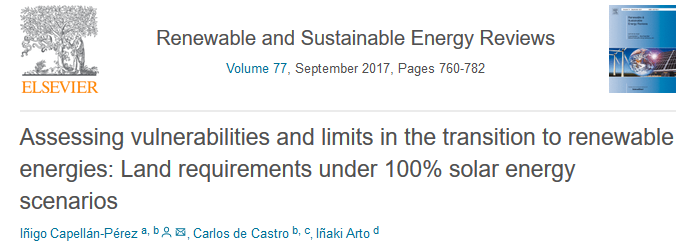March 25, 2017
Published by BC3Research at March 25, 2017
Categories
This study provides a methodologically rigorous attempt to disentangle the impact of various factors – unobserved heterogeneity, information and environmental attitudes – on the inclination of individuals to exhibit either a utility maximization or a regret minimization behaviour in a discrete choice experiment for renewable energy programmes described by four attributes: greenhouse gas emissions, power outages, employment in the energy sector, and electricity bill.
March 27, 2017
Published by BC3Research Sebastien Foudi Aline Chiabai Josue Polanco Marc Neumann at March 27, 2017
Categories
This paper proposes a methodology for quantifying benefits and costs of extensive green roofs as an urban strategy for adaptation to climate change. It seeks to highlight the consequences of threshold effects in the delivery of the benefits and non-linearity with respect to green roof coverage.
March 31, 2017
Published by BC3Research Iñaki Arto at March 31, 2017
Categories
The transition to renewable energies will intensify the global competition for land. Nevertheless, most analyses to date have concluded that land will not pose significant constraints on this transition. Here, we estimate the land-use requirements to supply all currently consumed electricity and final energy with domestic solar energy for 40 countries.
April 10, 2017
Published by BC3Research at April 10, 2017
Categories
BC3 Journal Article “Evaluation of the health impact of an urban regeneration policy: Neighbourhood”
Background Neighbourhood Renewal (NR) was launched in Northern Ireland (NI) in 2003 to revive the social, economic and physical fabric of 36 deprived communities, characterised by a legacy of sectarian conflict. This study evaluates the impact of the policy on health over a decade.
Methods A merged panel of secondary data from the British Household Panel Survey (2001–2008) and Understanding Society (2009–2012) yields longitudinal information on respondents for 12 years.




